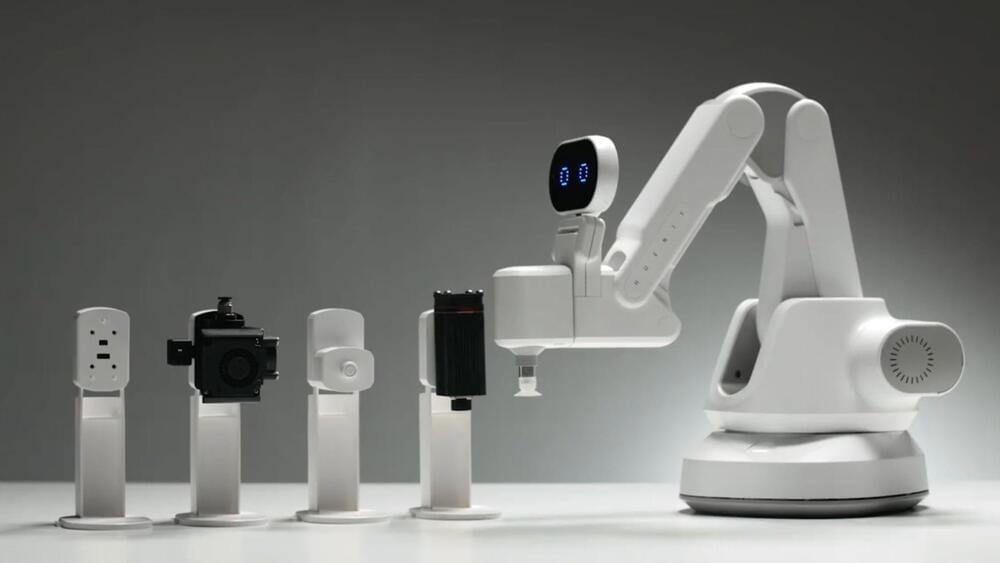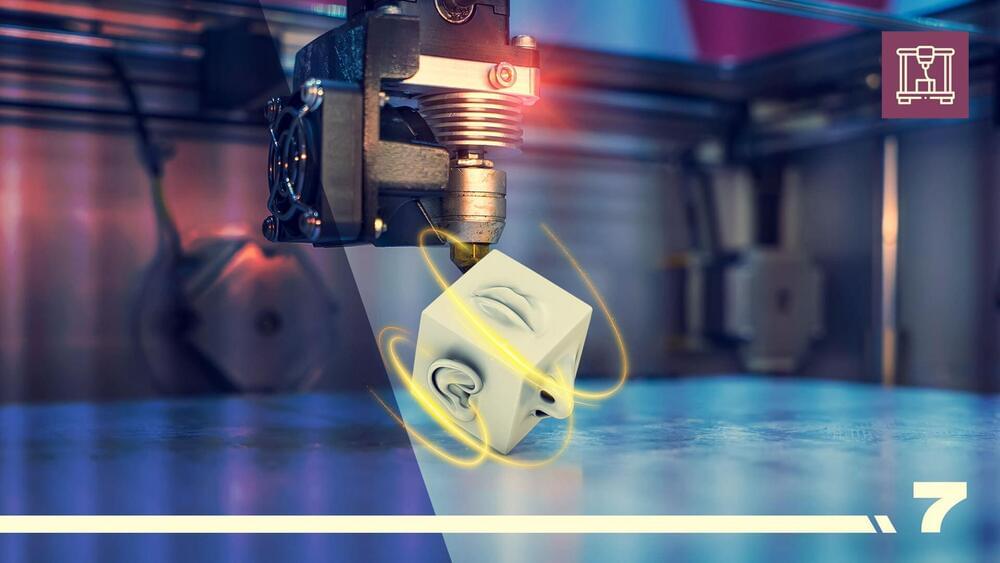A prototype house called BioHome3D has been developed by researchers using 3D printing technology. It is made of a mix of wood waste and bio-resins.



Hydrogels are three-dimensional (3D) polymer networks that do not dissolve in water but retain large amounts of liquids. Due to this advantageous property, hydrogels are particularly promising material platforms for both biomedical and environmental applications, as they can survive in bodily fluids or in wet natural environments without dissipating.
Over the past decade, engineers and materials scientists have been developing numerous electronic devices based on soft hydrogels, including environmental and biomedical sensors, drug delivery devices, and artificial tissue. Despite the huge potential of these hydrogel-based devices, their widespread implementation has so far been hindered by their high production costs.
A research team led by Dr. Nanjia Zhou at Westlake University and Westlake Institute of Advanced Studies in China have recently introduced a new strategy to enable the 3D printing of soft hydrogel electronics. Their approach, introduced in a paper published in Nature Electronics, could help to lower the production costs of numerous hydrogel-based devices, including strain sensors, inductors, and biological electrodes.
Check out some of the best AI-powered technology at this year’s Consumer Technology Association (CES) event in Las Vegas.
The 2023 Consumer Technology Association’s (CES) annual event is once again in full flow in Las Vegas.
Technology innovators, large and small, have come out in force to show off their latest offerings. Of particular interest are those that are leveraging artificial intelligence (AI)
The Consumer Technology Association (CES) has begun its 2023 showcase of the latest and greatest in technology from around the world. Vendors this year range from purveyors of the latest in 3D printing to fintech and everything in between.
1, 2

It can also rotate 220 degrees and lift up to 26.5 ounces of weight.
Supernova, a South Korean startup, has designed HUENIT, a robotic arm to help people with various household chores and creative tasks. Supernova showcased its AI Camera and Robot Arm at CES 2023. The company has been developing innovative robots to help people with everyday tasks.
Although many innovative technologies were showcased at the CES 2023, the Huenit Robot Arm captured the attention of visitors. HUENIT is an easy-to-use AI-based multi-functional robotic arm that combines advanced AI technologies with a modular arm to work on complex tasks with high precision. The robot can do everything from making coffee to 3D printing a prototype.
A company has donated 350 of Smit’s, the biomechanical engineer behind the design, 3D-printed prosthetic hands to war victims in Ukraine.
Delft University of Technology (TU Delft) researchers designed laser-cutting 3D-printed prosthetic hands for Ukranian war victims. Thanks to laser-cutting technology, war victims get their prosthetic limbs more easily. These prosthetic hands are in use in India, and Indian company Vispala donated 350 of Smit’s 3D-printed prosthetic hands to war victims in Ukraine, according to the TU Delft.
Designed by biomedical engineer Gerwin Smit, the so-called “Hundred Dollar Hand” is very cheap to produce. Smit’s artificial hand offers a sturdy and trustworthy option because 80 percent of persons who require a prosthetic hand reside in nations with few resources. Wetenschap/YouTube.

3D printers to create rapid on-demand objects have only been around for a short time. It’s a popular technique for making quick mock-ups or temporary solutions, but 3D-printing can also be used for more long-term applications. For example, some museums used it to create tactile models for interactive displays or even to create structural parts to support restoration projects. Either way, these are not temporary whimsical creations, but structures that they would likely still want to be in perfect shape several years down the line.
There are also other reasons to want to preserve 3D-printed materials for more than just a few years, but we haven’t had the technology for long enough to really know what will happen to these objects over time.
To find out, art conservation researchers at the Universidad Complutense de Madrid in Spain subjected two types of 3D printing materials to an artificial accelerated aging process. When plastics age, any damage such as loss of color or chemical changes in the materials are often caused either by UV radiation from exposure to light or by extreme temperature fluctuations. To simulate these extreme environments in a much faster scale than natural aging, the researchers put the 3D printed samples and the original filaments in two different chambers: One exposing the samples to UV light and the other subjecting them to a range of high temperatures.
As Meta faces antitrust scrutiny over its acquisition of VR fitness developers Within, the tech giant is making another acquisition. Meta confirmed to TechCrunch that it is purchasing Luxexcel, a smart eyewear company headquartered in the Netherlands. The terms of the deal, which was first reported in the Belgian paper De Tijd, have not been disclosed.
Founded in 2009, Luxexcel uses 3D printing to make prescription lenses for glasses. More recently, the company has focused its efforts on smart lenses, which can be printed with integrated technology like LCD displays and holographic film.

Amid rising mortgage rates and surging housing prices, one company is betting that 3D printing homes is a solution to the affordable housing crisis. Nancy Chen takes a look.
#3Dprinting #News.
“CBS Evening News with Norah O’Donnell” delivers the latest news and original reporting, and goes beyond the headlines with context and depth. Catch the “CBS Evening News” weeknights at 6:30 p.m. ET on the CBS Television Network and at 10 p.m. ET on the CBS News app.
Watch full episodes of “CBS Evening News”: https://cbsn.ws/23XekKA
Follow “CBS Evening News” on Instagram: https://bit.ly/1T8icTO
Like “CBS Evening News” on Facebook: https://on.fb.me/1KxYobb.
Follow “CBS Evening News” on Twitter: https://bit.ly/1O3dTTe.
Download the CBS News app: https://cbsn.ws/1Xb1WC8
Try Paramount+ free: https://bit.ly/2OiW1kZ
For video licensing inquiries, contact: [email protected]

Researchers in Spain have developed a new porous material capable of regenerating bones and preventing infections at the same time.
The scientists are from the Bioengineering and Biomaterials Laboratory of Universidad Católica de Valencia (UCV).
Tailor-made for each case using 3D printing, the biotech creations contain a bioactive alginate coating. This coating induces bone regeneration and destroys the bacteria that sometimes prevent bone formation from being completed.